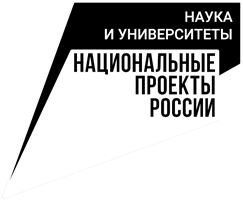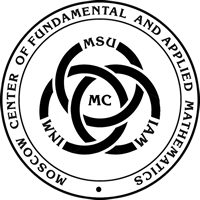165th meeting of the seminar
«Mathematical modeling of geophysical processes: direct and inverse problems»
The seminar is devoted to the consideration of various aspects of mathematical modeling of physical processes in the atmosphere, hydrosphere and active layer of land, associated with solving problems arising in the study of the problems of climate change and the natural environment.
Seminar Organizing Committee
| Leaders: |
Doctor of Physics and Mathematics A.V. Glazunov (Marchuk Institute of Numerical Mathematics of RAS) Doctor of Physics and Mathematics I.A. Repina (A.M. Obukhov Institute of Atmospheric Physics of RA) Doctor of Physics and Mathematics V.M. Stepanenko (RCC MSU, Geographical Faculty of Moscow State University) |
| Secretary: |
A.V. Debolsky (RCC MSU, A.M. Obukhov Institute of Atmospheric Physics of RAS). |
PROGRAM
17:15
| N.E. Chubarova | Faculty of Geography, Lomonosov Moscow State University |
| Yu.O. Shuvalova | Hydrometeorological Center of Russia |
| E.E. Androsova | Faculty of Geography, Lomonosov Moscow State University |
| A.A. Kirsanov | Hydrometeorological Center of Russia |
| M.V. Shatunova | Hydrometeorological Center of Russia |
| E.Yu. Zhdanova | Faculty of Geography, Lomonosov Moscow State University |
| A.A. Polyukhov | Faculty of Geography, Lomonosov Moscow State University Hydrometeorological Center of Russia |
| M.I. Varentsov | Faculty of Geography, Lomonosov Moscow State University Hydrometeorological Center of Russia Lomonosov Moscow State University Research Computing Center |
| G.S. Rivin | Faculty of Geography, Lomonosov Moscow State University Hydrometeorological Center of Russia |
Urban aerosol and its influence on atmospheric radiation and air temperature according to numerical experiments, ground and satellite measurements in the Moscow megapolis.
Urban aerosol pollution has a significant impact on radiation processes in the atmosphere and its temperature and humidity regime. For its assessment in the Moscow region we used the results of numerical simulations with different configurations of the COSMO-Ru-ART (Consortium for Small-scale Modeling, Aerosols and Reactive Trace gases) system of the Hydrometeorological Center of the Russian Federation using the chemical-transport model ART and the TERRA_URB parameterization, which allows taking into account the peculiarities of urban development. Numerical calculations were carried out with a grid spacing of 2 km using modern inventory databases CAMS, ECLIPSE, taking into account their redistribution according to OpenStreetMap data and their refinement. The impact of aerosol pollution on the radiation and meteorological characteristics of the atmosphere, as well as on the heat island was assessed. The sensitivity of radiation and meteorological fields to different scenarios of urban emissions has been assessed. The quality of estimation of gas-aerosol composition reproduction near the ground surface and in the atmosphere column was tested using measurements of the State Unitary Enterprise "Mosecomonitoring" and data of the international network AERONET at the Meteorological Observatory of MSU (MO MSU). Estimates of urban aerosol pollution were also carried out on the basis of MODIS and MISR satellite data, which revealed spatial and temporal variability of aerosol optical thickness in the Moscow region from 2000 to 2021 and its urban component. Based on numerical experiments with the COSMO model, estimates of its influence on radiation and temperature effects in the region are shown. To identify the effects of cloud-aerosol interaction, we analyzed the period of lockdown due to COVID-19 in the spring of 2020, when emissions of pollutants into the atmosphere decreased significantly due to a significant reduction in emissions of pollutants from vehicles, as well as the closure of many enterprises. Based on satellite data under similar meteorological conditions, a decrease in the concentration of cloud condensation nuclei during this period by 50 cm<sup>3</sup> is shown. Numerical experiments with the COSMO model made it possible to estimate the radiation effects due to this phenomenon. Thus, the use of a set of data from numerical experiments together with the results of satellite and ground-based monitoring made it possible to estimate the magnitude of urban aerosol pollution and its direct and indirect effects on cloudiness, radiation and air temperature in the conditions of the Moscow metropolis.
The seminar will be held in the form of a webinar on the Zoom platform.
Topic: семинар "Математическое моделирование геофизических процессов: прямые и обратные задачи".
Time: October 26, 2023 05:15 PM Moscow (GMT+3)
Meeting ID: 842 5656 3043
Passcode: 650941
For communication on all issues related to the work of the seminar, please contact the academic secretary Andrey Vladimirovich Debolsky at and.debol@srcc.msu.ru

